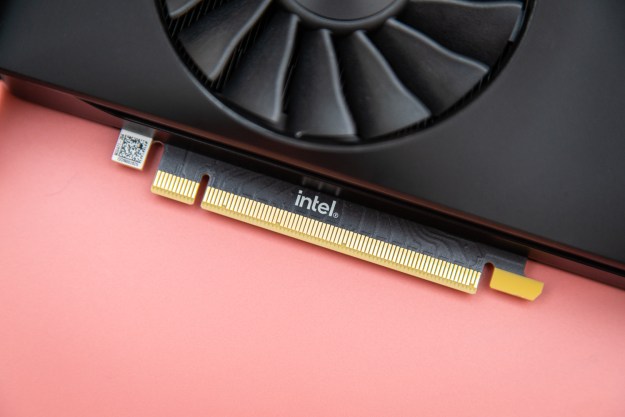
Intel is facing some big problems with its 13th-gen and 14th-gen CPUs. As we reported on last week, gamers are returning high-end Intel CPUs in droves because of inexplicable crashes when playing the latest games. Now, we might have a solution, at least until Intel can tackle the problem properly.
The guidance comes from Falcon Northwest, which is a Portland-based system builder that received a rare perfect score from Digital Trends (read our Falcon Northwest Tiki review for more on that). Kelt Reeves, president of Falcon Northwest, said that the team has had “many long days of testing on many different CPUs that had developed issues here in our production and in the field from our clients.” The result of that testing is a list of BIOS settings that should fix the problem.
📢UPDATED 4-18: For anyone experiencing crashes on Intel 13th/14th Gen CPUs, a beta-test mitigation you can try for ASUS Z790 motherboards & i9 K CPUs:
1) Update to latest BIOS. Load defaults
2) Set all screenshot values, reboot
More👇
Note: not official intel/ASUS guidance pic.twitter.com/DXQVCZlZ3n— Falcon Northwest (@FalconNW) April 19, 2024
You can see those settings in the post above. Falcon Northwest exclusively uses Asus motherboards, so unfortunately, you won’t be able to copy these settings exactly for every motherboard brand. Oodle, a decompression tool used in many PC games, released a troubleshooting guide earlier in the year that could clear up issues, as well.
Intel has recognized that this is a problem, but a fix is still in progress. As Falcon Northwest points out, these settings are simply a mitigation step. We’ll need to wait for an official fix from Intel before the problem is completely gone. “This is a real issue and Intel is aggressively working [on] the problem, but it’s complex and is taking longer than we hoped,” Reeves wrote in an email to Digital Trends.
Several months in the making
The crashing on Intel’s highest-end CPUs isn’t a new problem. It’s been affecting users for several months at this point, with reports of problems going back to November 2023. From what we know right now, the problem seems to stem from the default power limits for Intel processors, particularly 13th-gen and 14th-gen Core i9 and Core i7 chips. In some games, most notably Unreal Engine games, you could see an error that the game has run out of video memory, causing it to crash. In extreme cases, the crashing could result in a Blue Screen of Death (BSOD).
Nvidia calls out Intel for instability and provides receipts. Might finallllllly be time to tighten up on those power specs with board makers. (Intel is also looking into this issue) pic.twitter.com/v5aGucxngI
— Hardware Unboxed (@HardwareUnboxed) April 12, 2024
Intel didn’t say much about the issue for several months, but it’s been building over the last few weeks. Over the weekend, for example, Nvidia posted a new driver where it specifically called out the crashing with Intel CPUs, letting users know it wasn’t an issue with their graphics card.
I’ve also run into the problem many times over the last several months. I use a Core i9-13900K in my main gaming PC, and I’ve experienced inexplicable crashes and BSODs in Fortnite, Remnant 2, and Lords of the Fallen, among other games. The challenge with this problem is that it isn’t consistent — it’s difficult to test because crashes don’t always show up.
What you can do right now

For now, the best thing to do is follow the BIOS settings posted by Falcon Northwest or Oodle. It seems the problem mainly affects the Core i9-14900K and Core i9-13900K, and Core i7-14700K and Core i7-13700K to a lesser degree. It doesn’t affect all users, either; if you have one of these chips and haven’t experienced problems, you don’t have anything to worry about.
I’ve spoken with Intel and some motherboard vendors about the problem. One motherboard vendor told me: “Objectively, we do not fully understand the problem/behavior and need more time doing our own testing and communicating with Intel.”
In addition, Intel provided the following statement to Digital Trends: “Intel is aware of reports regarding Intel Core 13th and 14th Gen unlocked desktop processors experiencing issues with certain workloads. We’re engaged with our partners and are conducting analysis of the reported issues.”
Editors' Recommendations
- No, Intel isn’t blaming motherboard makers for instability issues
- Intel’s big bet on efficient GPUs might actually work
- Some Intel CPUs lost 9% of their performance almost overnight
- I tested Intel’s XeSS against AMD FSR — and the results speak for themselves
- Gamers are reportedly returning Intel Core i9 CPUs in droves




